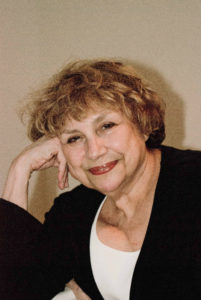Doctor Curmudgeon®: The Sisters Who Made Us Possible
 By Diane Batshaw Eisman, M.D. FAAP Doctor Eisman, is in Family Practice in Aventura, Florida with her partner, Dr. Eugene Eisman, an internist/cardiologist.
By Diane Batshaw Eisman, M.D. FAAP Doctor Eisman, is in Family Practice in Aventura, Florida with her partner, Dr. Eugene Eisman, an internist/cardiologist.
“The Edinburgh Seven”
Sounds like a group of terrorists? Not so. “The Edinburgh Seven” refers to seven women who had the audacity to study Medicine in 1869. Seven pioneers who were the first women to enter the University of Edinburgh to become doctors.
Sophia Jex-Blake, one of “The Edinburgh Seven,” was determined to become a physician. She was accepted by the Edinburgh University Medical Faculty and the Senatus Academicus. Not good enough; after all she was a female and it was impossible for the university to accommodate one woman. Who cared about her intellectual ability? Certainly not the University Court which rejected her.
The daughter of a lawyer, she used her skills to begin a campaign. She wrote letters and advertised in national newspapers in Scotland. Although born in England, she applied to a Medical Faculty in Scotland, as Scotland had a more enlightened view of educating women. Thus her best chance of acceptance would be at a Scottish University
Six other women joined her and the seven sat for the matriculation examination of 1869. This difficult exam had 152 candidates sitting for it. A passing grade on this exam meant that they would be allowed to attend classes and take the examinations which would lead to a degree in Medicine. Four of the women placed in the top seven
These women who came before us endured so much. There was the Surgeon’s Hall riot in November 1870. As the seven women approached the hall where they were to take an anatomy exam, a crowd pelted them with trash and mud. The entrance gate was slammed shut in their faces. It was another student, male and sympathetic to their cause who led them to a side door and helped them gain admittance.
Yet, even with the support of the famous Charles Darwin, The Edinburgh Seven were not allowed to qualify as physicians. Their courage and tenacity finally led to the UK Medical Act of 1876, which permitted women to study Medicine in the United Kingdom. However, five of the woman eventually received MD degrees in Bern and in Paris.
It was not until 1892 that Scottish Universities admitted woman as undergraduates. Although other courses were co-educational, medical classes were still segregated.
It took a long time for recognition. In 2015 Edinburgh University presented a tribute to these women in the form of a commemorative Plaque. Yet, it was not until 2019 when they received the posthumous honorary degree of MNCHB (Bachelor of Medicine and Bachelor of Surgery). Seven women students accepted the degrees.
Too little too late.
Dr. Curmudgeon suggests “Bitter Medicine”, Dr. Eugene Eisman’s story of his experiences–from the humorous to the intense—as a young army doctor serving in the Vietnam War.
Bitter Medicine by Eugene H. Eisman, M.D. –on Amazon
Doctor Curmudgeon® is Diane Batshaw Eisman, M.D., a physician-satirist. This column originally appeared on SERMO, the leading global social network for doctors.
SERMO www.sermo.com “talk real world medicine”
[si-contact-form form=’2′]

